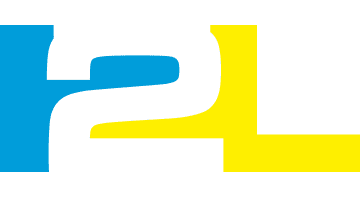We were honored to once again host an open forum discussion to explore diversity, equity and inclusion (“DEI”) with our I2L Innovators Community on August 24, 2022.
This forum gave DEI leaders from several accounting firms across the country the opportunity to connect, learn from, and support one another with this important work.
We asked participants three big questions related to DEI:
- What approaches, methods or practices are working well for your firm?
- What are your biggest challenges?
- What is next for you and your firm?
Participants enjoyed connecting and learning in smaller break-out sessions, then sharing their biggest takeaways and aha moments with the full group afterwards.
As with previous DEI open forums we’ve hosted, this group generously granted us permission to share some of the highlights of the session. We’re excited to share a summary of what we observed and learned from this incredible group of professionals.
Following are some key success factors:
Executive leadership support is critical.
Without this support, “all of it feels challenging.” It feels like box-checking and lip-service. The organization will not ever be able to go all-in on DEI (not even close), without the full buy-in of leadership.
People from firms where leadership was fully invested in DEI witnessed leaders who exhibited true passion and commitment to the cause, resulting in significant impact and opportunities for their firms.
Create and maintain a formal DEI strategy to make everything you do more real and tangible.
For example, one firm formulated a five-year DEI strategic plan which every partner signed off on. Each year, progress and accomplishments are evaluated against the plan. On an on-going basis, DEI leadership:
- Measures progress and evaluates where they are on strategic goals
- Reports back to the entire firm on progress, creating true accountability
- Shares why this matters
Several firms hired an external consultant to support them in developing a DEI strategy. An external expert provided an analysis of where the firm was currently at and identified opportunities to do things differently. This was very valuable, as it provided firms with a strong foundation from which to move forward.
Recruiting is paramount to DEI strategy.
Ensure the recruiting team is trained on general topics like unconscious bias, while understanding that everyone is in a different place on their DEI journeys. Individuals need customized development and must commit to doing their own personal work.
Attracting and retaining diverse talent requires a long-term strategy. Start earlier, going to community colleges, high schools and community organizations to share the opportunities available in the accounting profession.
A shared understanding and language around DEI is foundational.
This fosters a shared experience and inclusion for the entire firm. Creating a common language (e.g., definitions of key words such as diversity, equity and inclusion) that is consistent, there is a shared understanding and baseline from which to discuss DEI issues. You can set people up for success in moving DEI initiatives and education forward and encourage more positive, inclusive behaviors.
Following are some questions and challenges:
Lack of diversity in executive leadership ranks continues to be a deterrent to attracting and retaining a diverse workforce.
It’s harder for those who don’t see anyone who looks like them at the highest levels of an organization. This begs the question, “How can you say you are prioritizing diversity as an important part of firm strategy when your executives are not diverse?” Instead of avoiding this, leadership should directly address it.
How can we provide various educational opportunities that make a difference?
Just as with any other education that occurs at an organization, consider various busy seasons to ensure employees can fully engage in DEI training.
Following are some examples of what some firms are doing:
- Create an employee spotlight where 3-5 employees are asked the same questions to highlight each person’s unique values and perspective.
- Empower community/employee resource groups (CRGs or ERGs) to provide education opportunities within the firm (e.g., sharing the lived experiences of different individuals) focused on inclusion and belonging.
- Foster expanded perspectives by sharing a multitude of voices in education and awareness raising activities.
Should DEI training be voluntary or mandatory?
What happens when the people who really need to be in the room do not attend? If you want real change within your organization, should the training be mandatory?
How can we get our people to raise and talk about the “hard stuff”?
Solicit feedback from everyone in the firm to gather different viewpoints. Expect that some of it will be negative! Using internal focus groups can uncover some powerful learning. It’s important to try different things, and keep learning as you go!
This is the fourth DEI session we’ve had with this community since 2020, and we hope you’ll tap into the insights from our previous conversations:
- DEI Insights from the I2L Innovators Community (February 2022)
- DEI Insights from the I2L Innovators Community (February 2021)
- Diversity, Equity and Inclusion in Accounting: What Is Ours to Do? (July 2020)
We are energized and inspired by the level of commitment that was on display during this open forum discussion. We know our profession still has a very long ways to go, and we also like to remind ourselves and all of those around us, that we will move forward faster together!
See you in the DoP,








